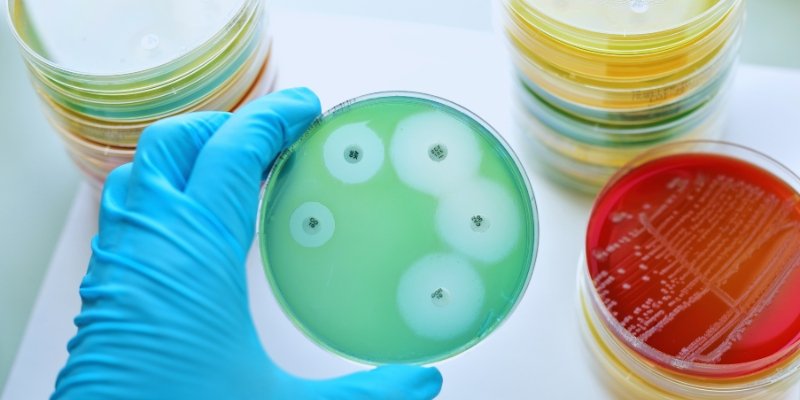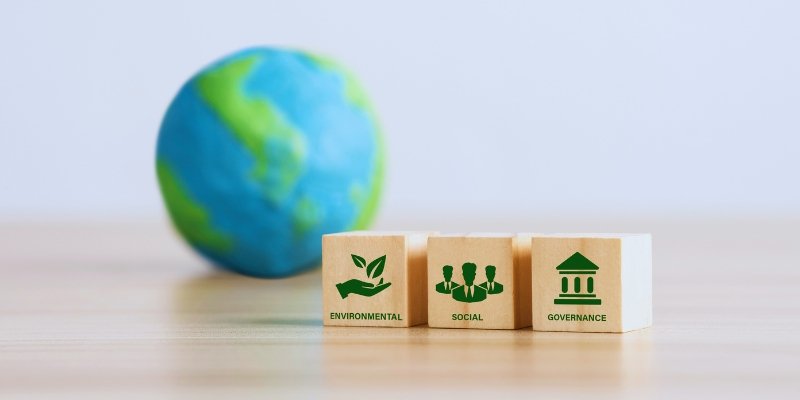Establishing an Antimicrobial Business in Singapore: A Guide for Aspiring Entrepreneurs

In recent years, the global focus on health and hygiene has intensified, particularly in light of public health crises. As a result, the demand for antimicrobial products and solutions has surged. Singapore, with its robust healthcare system and innovation-driven economy, presents a fertile ground for aspiring entrepreneurs looking to establish an antimicrobial business. This guide will outline the essential steps, challenges, and financial considerations involved in launching your antimicrobial business in this vibrant city-state.
Reasons to Start an Antimicrobial Business in Singapore

Growing Market Demand: The increasing awareness of hygiene and infection control has led to a heightened demand for antimicrobial products across various sectors, including healthcare, food service, and consumer goods. This trend presents significant opportunities for new businesses.
Government Support: The Singapore government actively encourages innovation and entrepreneurship, particularly in the health and biotech sectors. Various grants and funding programs are available to support startups focusing on antimicrobial solutions, making it easier for entrepreneurs to get started.
Strong Research and Development Ecosystem: Singapore is home to numerous research institutions and universities that focus on life sciences and biotechnology. Entrepreneurs can leverage this ecosystem to collaborate on research and development, enhancing the quality and effectiveness of their antimicrobial products.
Focus on Sustainability: With a global shift towards sustainable practices, there is a growing demand for environmentally friendly antimicrobial solutions. Entrepreneurs who prioritize sustainability in their products can attract a conscientious consumer base.
Detailed Steps to Establish an Antimicrobial Business

Conduct Market Research: Begin by analyzing the local and regional market for antimicrobial products. Identify your target audience, understand their needs, and assess your competitors. This research will help you define your niche and tailor your offerings.
Create a Comprehensive Business Plan: A solid business plan is crucial for your antimicrobial business. Outline your business objectives, target market, service offerings, marketing strategies, and financial projections. This document will serve as your roadmap for success.
Register Your Business: Choose a suitable business structure (e.g., sole proprietorship, partnership, or private limited company) and register your business with the Accounting and Corporate Regulatory Authority (ACRA) in Singapore.
Obtain Necessary Licenses and Certifications: Depending on the nature of your antimicrobial products, you may need specific licenses and certifications from relevant authorities, such as the Health Sciences Authority (HSA). Ensure compliance with all regulations governing the production and sale of antimicrobial products.
Set Up Your Operations: Identify a suitable location for your operations, considering factors such as accessibility, proximity to suppliers, and target markets. Invest in the necessary equipment and technology to support your antimicrobial product development and manufacturing processes.
Develop a Marketing Strategy: Create a marketing plan to promote your antimicrobial business. Utilize digital marketing, social media, and industry events to raise awareness and attract customers. Building a strong online presence is crucial in today’s competitive landscape.
Build Relationships with Suppliers and Distributors: Establish connections with suppliers for raw materials and ingredients needed for your antimicrobial products. Additionally, build relationships with distributors to ensure your products reach the market effectively.
Challenges and Considerations for Both Local and Foreign Entrepreneurs

Starting an antimicrobial business in Singapore comes with unique challenges that both local and foreign entrepreneurs must navigate.
Regulatory Compliance: The regulatory landscape for antimicrobial products can be complex. Entrepreneurs must stay informed about licensing requirements, safety standards, and environmental regulations to ensure compliance.
High Competition: The antimicrobial market is becoming increasingly competitive, with numerous established players. New entrepreneurs must differentiate their products and offer exceptional quality to capture market share.
Research and Development Costs: Developing effective antimicrobial products often requires significant investment in research and development. Entrepreneurs should be prepared for the costs associated with product testing and validation.
Consumer Education: Educating consumers about the benefits and proper use of antimicrobial products is essential for market acceptance. Entrepreneurs must invest in marketing and outreach efforts to inform potential customers.
Financial Planning Aspects

Effective financial planning is critical for the success of your antimicrobial business. Here are some key considerations:
Startup Costs: Calculate all initial expenses, including equipment, licenses, raw materials, and operational costs. A detailed budget will help you understand your financial requirements and plan accordingly.
Funding Options: Explore various funding avenues, such as government grants, loans, and private investors. The Singapore government offers several funding programs aimed at supporting small and medium-sized enterprises (SMEs) focused on innovation.
Pricing Strategy: Determine a competitive pricing structure for your products. Consider factors such as production costs, market rates, and your target clientele to establish a viable pricing strategy.
Cash Flow Management: Monitor your cash flow closely to ensure you can cover operational expenses. Implementing a robust accounting system will help you track income and expenses effectively.
Conclusion
Establishing an antimicrobial business in Singapore presents a unique opportunity for aspiring entrepreneurs. By understanding the market dynamics, navigating regulatory requirements, and focusing on innovation and quality, you can create a successful venture in this essential industry. If you are ready to take the next step, contact Company Formation Specialist today for expert guidance and support in setting up your antimicrobial business. Let us help you turn your entrepreneurial vision into reality!
Frequently Asked Questions
1. What is the demand for antimicrobial products in Singapore?
Answer: The demand for antimicrobial products in Singapore has surged due to increased awareness of hygiene and infection control. Key sectors like healthcare, food service, and consumer goods are driving this demand.
2. What government support is available for antimicrobial businesses in Singapore?
Answer: The Singapore government offers various grants and funding programs to support startups focusing on antimicrobial solutions, particularly in the health and biotech sectors.
3. How can research and development help my antimicrobial business?
Answer: Singapore’s strong research and development ecosystem, including research institutions and universities, offers opportunities for collaboration to enhance the quality and effectiveness of antimicrobial products.
4. What are the initial steps to start an antimicrobial business in Singapore?
Answer: Key steps include conducting market research, creating a comprehensive business plan, registering your business with the ACRA, obtaining necessary licenses, setting up operations, and developing a marketing strategy.
5. What licenses are required for antimicrobial businesses in Singapore?
Answer: Depending on the nature of your antimicrobial products, you may need licenses and certifications from authorities like the Health Sciences Authority (HSA) to ensure compliance with safety and regulatory standards.
6. What are the main challenges in establishing an antimicrobial business in Singapore?
Answer: Key challenges include navigating complex regulatory compliance, managing high competition, handling research and development costs, and educating consumers on the benefits of antimicrobial products.
7. How can I manage the financial planning for my antimicrobial business?
Answer: Effective financial planning involves calculating startup costs, exploring funding options, developing a pricing strategy, and closely monitoring cash flow to ensure sustainable operations.
8. Are there funding options available for antimicrobial businesses in Singapore?
Answer: Yes, various funding options are available, including government grants, loans, and private investors. The Singapore government specifically supports small and medium-sized enterprises (SMEs) focused on innovation.
9. How can I differentiate my antimicrobial products in a competitive market?
Answer: Focus on innovation, exceptional quality, and sustainability. Differentiating your products through these factors, along with effective marketing strategies, can help you stand out in the competitive antimicrobial market.
10. What are the key considerations for foreign entrepreneurs starting an antimicrobial business in Singapore?
Answer: Foreign entrepreneurs must navigate regulatory requirements, understand the local market, and ensure compliance with industry standards. Additionally, building relationships with local suppliers and distributors is essential.

